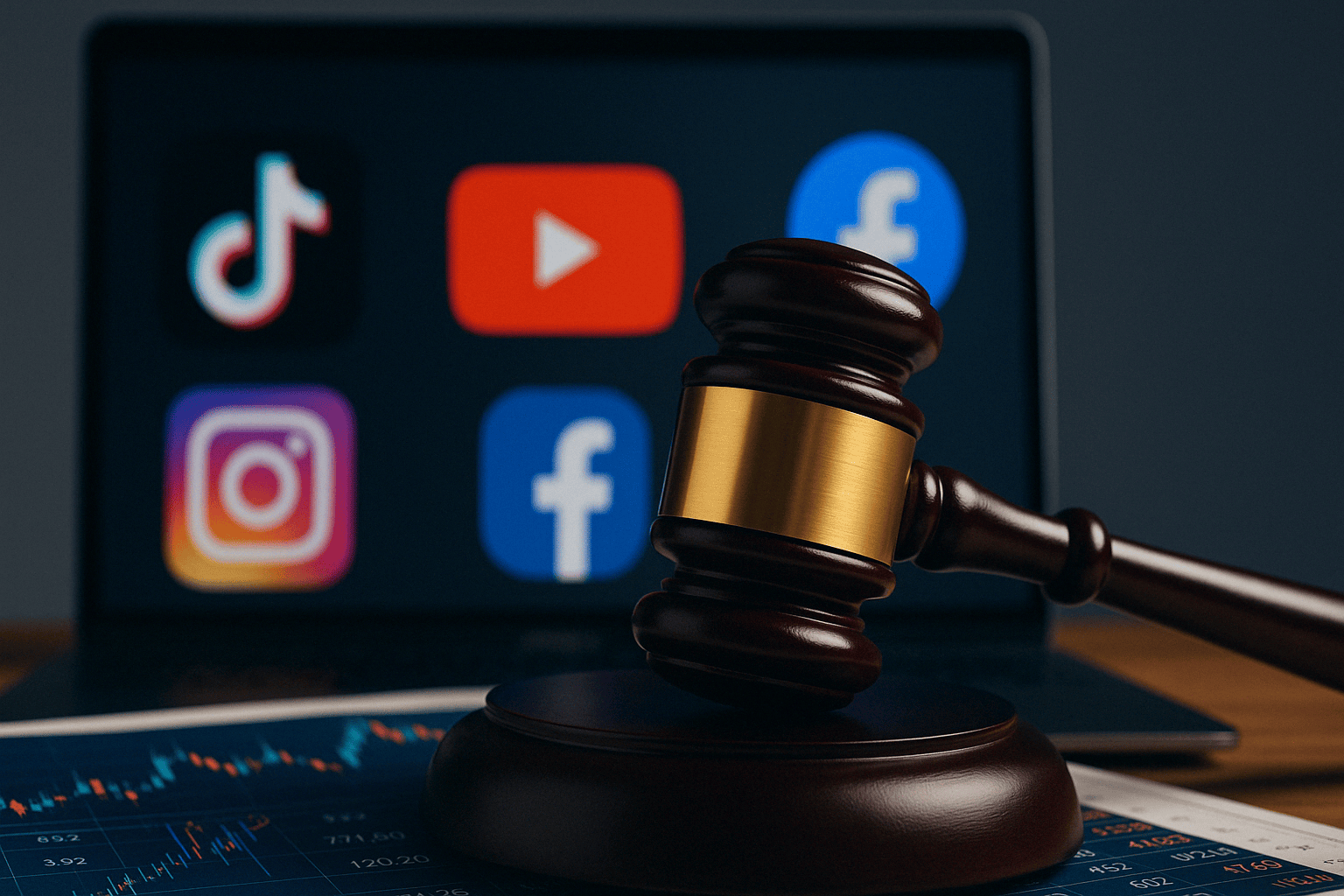Why social platforms could be next in the financial influencer crackdown

In South Africa, the Financial Sector Conduct Authority (FSCA) has just issued a stern warning to influencers who promote financial products online. The clampdown includes new guidelines that force creators to disclose qualifications, prohibit misleading promotions, and hold both influencers and the companies that pay them jointly accountable for any harm done.
But while all eyes are on the influencers, there’s another player in this story that’s being let off the hook—for now.
The platforms themselves.
TikTok, Instagram, YouTube and others have built their businesses on user-generated content. They’ve profited handsomely from giving everyone a voice, but they’ve also provided a stage for bad actors to perform unchecked. With the FSCA leading this charge and regulators around the world taking note, it’s only a matter of time before social platforms are asked to explain how financial misinformation – particularly harmful in emerging economies – is still being amplified under their watch.
Playing host or playing dumb?
When a 19-year-old starts pumping a dodgy crypto token to their 250,000 TikTok followers, it’s rarely a coincidence. The algorithm rewards high engagement, and controversial or aspirational content spreads fast. That means content with promises of quick wealth—trading bots, side hustles, high-yield ‘opportunities’—is pushed to the top, regardless of its legitimacy.
Platforms have long taken the view that they are neutral distributors of content. But neutrality doesn’t cut it when people are losing their savings. And as regulation tightens, passing the blame back to creators won’t hold up much longer.
In a recent podcast episode with Greta Dunn, we talked about this exact problem. Platforms say they’re democratising speech. But there’s a difference between democratising access and failing to moderate dangerous nonsense that costs people their futures.
The money trail leads to the top
It’s not just the creators or the brands paying them who are making money off these financial promotions. Platforms are taking their cut too. Whether it’s through paid reach, creator tipping, or plain old ad revenue, they benefit from the attention economy – even when that attention is based on deception.
In that context, the FSCA’s move looks like the first domino. By holding creators and brands jointly liable, they’re sending a message: no more blame games. But if platforms keep raking in profits from the same behaviour, they risk becoming the next logical target.
It’s not hard to imagine what that might look like. A new requirement for platforms to vet financial content. Stricter enforcement of community guidelines. Perhaps even licensing conditions for financial accounts or hashtags, similar to how YouTube handles health-related videos. South Africa might not have the global clout to force such changes, but their action will inspire others—especially in countries facing similar issues with economic inequality and online scams.
When free speech meets financial harm
The argument from platforms will, of course, be freedom of speech. It always is. But even free speech has limits – particularly when it crosses into harmful advice masquerading as truth. The problem isn’t that people can talk about money online. It’s that there’s no safeguard between a bored teen with a ring light and thousands of people risking their paychecks based on that person’s hot take on forex trading.
Greta and I discussed how the design of social platforms often creates the illusion of credibility. Someone standing in front of a luxury car talking about generational wealth gets far more clicks than a financial planner in a modest office. But that visual authority is hollow. And once you’ve clicked, the algorithm serves up more of the same.
It creates a filter bubble where scams are dressed up as success stories, and viewers are too deep before they realise what they’ve fallen into.
What happens next?
For now, the FSCA crackdown is limited to South Africa. But similar conversations are happening in the UK, the US, Australia and across Southeast Asia. The idea of regulating content creators without addressing the platforms they use is like trying to mop up a flood while the taps are still running.
The platforms won’t volunteer to fix this. There’s too much ad revenue at stake. But the public mood is shifting. Regulators are starting to understand how harmful content spreads, and whose pockets it lines. If South Africa’s actions spark a trend, the next crackdown could come with serious obligations for the tech giants themselves.
Until then, the platforms continue to profit while others pick up the pieces.
—
🎧 Listen to our full episode with Greta Dunn for a deeper dive into how the illusion of free speech is used to justify content that’s causing real-world damage—and what regulators, platforms, and creators should be doing instead.






